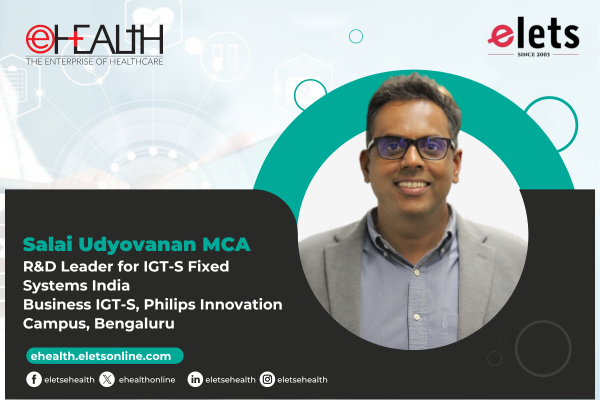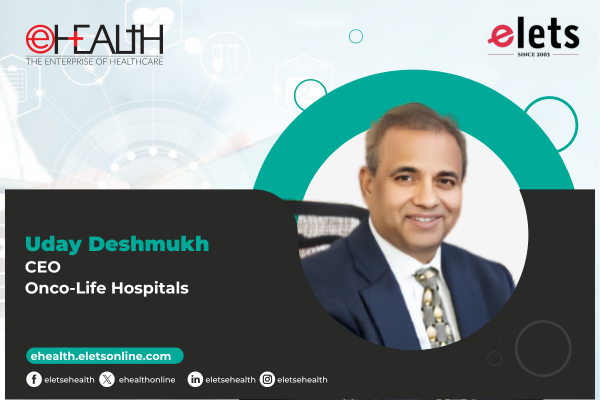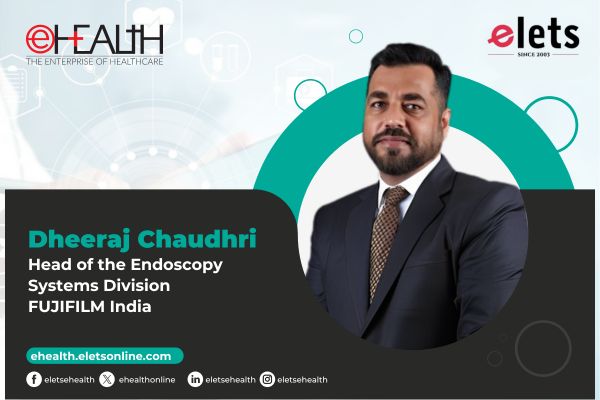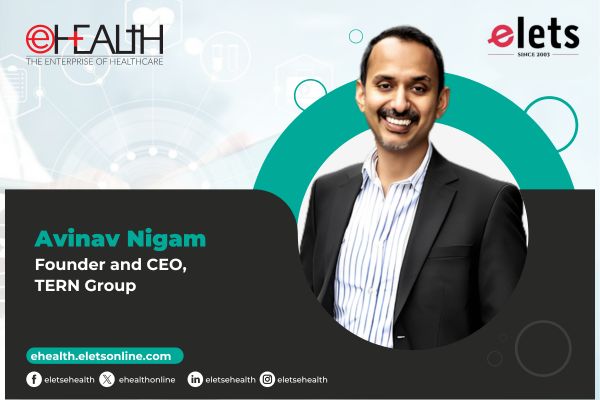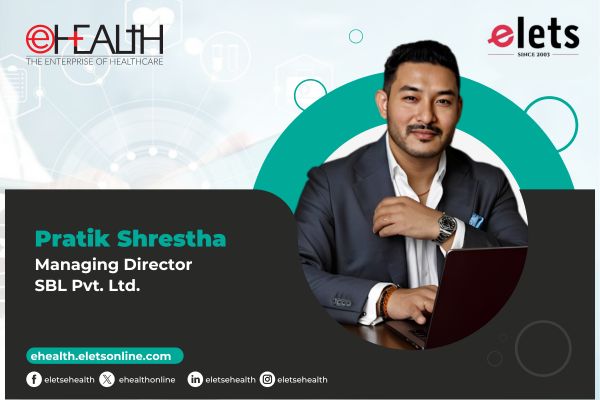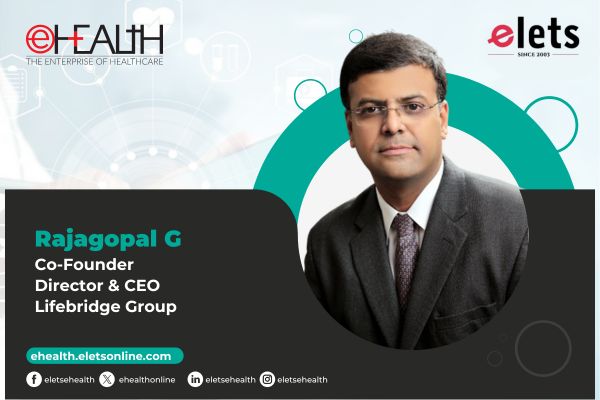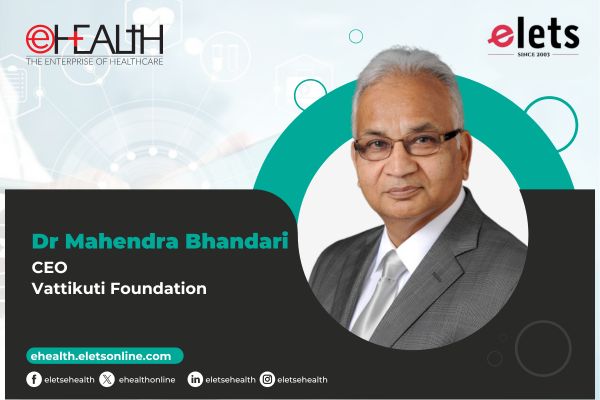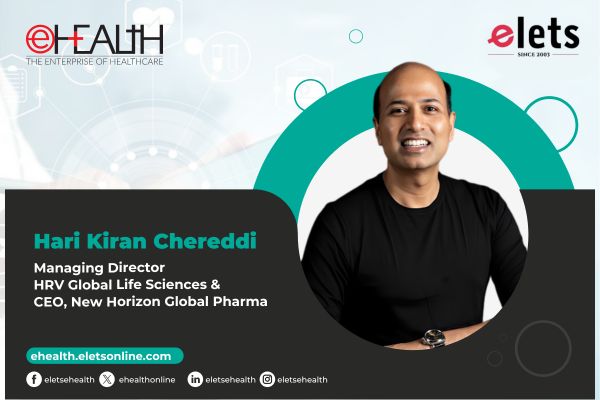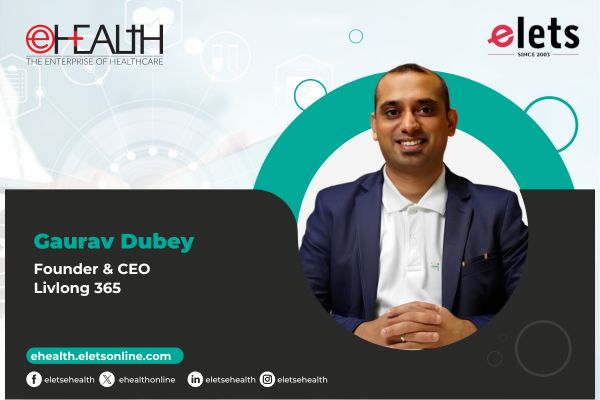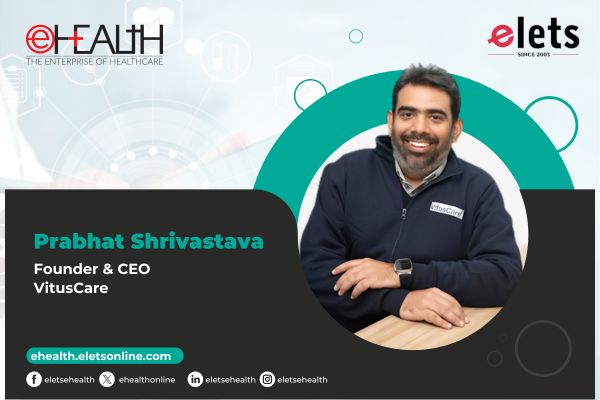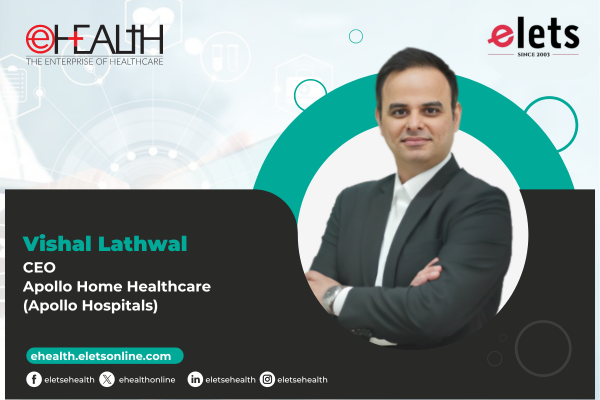
With India’s healthcare burden rising—projected to reach $372 billion by 2025—and over 70% of the population living in rural areas with limited access to quality care, home healthcare is becoming a vital solution. In an exclusive conversation, Vishal Lathwal, CEO of Apollo Home Healthcare (Apollo Hospitals), discussed with Dr. Asawari Savant of Elets News Network (ENN), the integration of emerging technologies like AI, IoT, and telemedicine, that are crucial to bridge these gaps and deliver accessible, affordable, and efficient care at scale. Edited excerpts
How do you see emerging technologies like AI, IoT, and telemedicine transforming the home healthcare sector in India?

Home healthcare in India is undergoing a significant transformation, driven by emerging technologies such as AI, IoT, and telemedicine. While still in its early stages, this shift is creating a more proactive, data-driven, and patient-centric ecosystem.

Remote Patient Monitoring (RPM) is playing a crucial role in enhancing accessibility, growing at a projected CAGR of 20.2% from 2022 to 2030. By enabling real-time tracking of patient vitals and chronic conditions, RPM reduces hospital visits and ensures timely interventions.

AI-driven predictive analytics is another game-changer, improving early detection of critical conditions such as diabetes and cardiovascular diseases, which contribute to nearly 60% of deaths in India. By identifying early warning signs, AI allows for timely medical interventions, reducing complications and improving long-term health outcomes.

Clinical automation is also advancing with Natural Language Processing (NLP)-powered electronic health records (EHRs), streamlining patient documentation and reducing administrative workload for caregivers. This ensures accurate and accessible health records, leading to better care coordination.
Additionally, IoT-enabled smart devices and telemedicine are bridging the urban-rural healthcare divide, allowing patients in remote areas to access expert consultations and continuous monitoring without needing to visit a hospital.
As these technologies continue to evolve, home healthcare in India will become more efficient, personalised, and accessible, ultimately improving patient outcomes and reducing the overall burden on the healthcare system.
What are the key challenges in integrating technology into home healthcare, and how can they be addressed?
Integrating technology into home healthcare faces key challenges, including outdated equipment lacking real-time data transmission and interoperability issues due to non-standardised health data formats. In India, where multiple platforms operate, data consolidation remains difficult, and smart wearable adoption is still low. Standardisation frameworks and global protocols like Fast Healthcare Interoperability Resources (FHIR) can bridge these gaps. Awareness campaigns and incentives can drive wearable adoption. Despite these challenges, innovation in digital healthcare has immense potential to enhance accessibility, streamline care coordination, and create a truly connected home healthcare ecosystem.
How is remote patient monitoring improving healthcare accessibility and patient outcomes?
Remote patient monitoring (RPM) is transforming healthcare by enabling proactive care and reducing hospital readmissions by up to 38%. By continuously tracking vital signs and using analytics, it helps detect health risks early, allowing for timely intervention. The growing affordability of smart health devices has made RPM more accessible, though awareness remains a challenge. Despite this, RPM is proving to be a cost-effective solution, with the potential to lower overall healthcare expenses by 25-30% compared to hospital-based treatments, making quality care more accessible to patients at home
What role do AI and data analytics play in predictive healthcare, and how does it impact home-based treatments?
AI and data analytics are transforming home healthcare by enabling early detection and proactive intervention. Predictive models now forecast stroke, cardiac risk, and sepsis with up to 90% accuracy. AI-driven wearables monitor vitals in real time, allowing timely action. Personalised treatment plans and AI-supported medication management reduce adverse drug reactions by 40-50%. For home healthcare providers, NLP-driven analysis of patient data helps identify health patterns, improving decision-making and patient outcomes while lowering overall healthcare costs.
With the growing digitisation of healthcare, how can organisations ensure data security and patient privacy?
Ensuring data security and patient privacy requires a multi-layered approach. First, segregating and managing data—PII, health records, and behavioural data—helps enforce specific security norms. Second, implementing best practices like encryption, access controls, real-time monitoring, and data de-identification strengthens protection. Finally, strict compliance with regulations, including the Digital Personal Data Protection Act 2023, National Digital Health Mission, and IT Act 2000, ensures legal adherence. A robust security framework is essential to maintaining trust in digital healthcare.
How are you integrating technology to enhance patient care and service efficiency?
We are leveraging technology to improve both patient care and service efficiency. By implementing automated service flows, we streamline operations, reducing delays in care delivery. AI-driven resource allocation optimises staffing and logistics, ensuring timely and efficient healthcare services. Additionally, integrated patient health records enhance treatment continuity, allowing caregivers to access real-time medical histories for better decision-making. These innovations are helping us provide more personalised, proactive, and efficient home healthcare solutions.
Can you share some of the latest tech-driven innovations introduced by Apollo Home Healthcare? Latest Tech Innovations in Home Healthcare
At Apollo Home Healthcare, we are integrating advanced technology to enhance patient safety and care. Our wearable ECG devices continuously monitor heart rhythms, helping detect abnormalities in high-risk patients. Additionally, our Fall Risk Detection Systems are designed for patients with high fall risk scores, significantly reducing fall-related hospitalisations by 40-50%. These innovations enable early intervention, improving patient outcomes and ensuring safer home-based healthcare.
How are you addressing the urban-rural healthcare divide using digital solutions?
Bridging the urban-rural healthcare gap requires scalable digital solutions. Video consultations and remote vital monitoring help expand access to quality care in underserved areas. At Apollo Home Healthcare, we are developing an integrated model that connects primary healthcare systems with Telehealth Command Centres and a network of hospitals. This approach ensures comprehensive patient care, timely medical interventions, and improved healthcare accessibility for rural populations, reducing the need for long-distance travel and hospital visits.
Also Read :- VIT University and Gleneagles Hospital Chennai Sign MoU to Pioneer AI-Led Neuroscience Advancements
What are some of the key trends that will define the future of home healthcare in India?
Home healthcare in India is evolving beyond traditional services, with a growing focus on specialised care, particularly for the elderly. AI-enabled smart systems integrated with homecare and hospital networks will enhance remote monitoring and proactive interventions. Blockchain technology will play a crucial role in ensuring secure data integration and interoperability. Additionally, AI-powered tele-nurse support will provide 24/7 assistance for critical concerns like medication management, diet monitoring, and early detection of health risks, improving overall patient care and outcomes.
What is Apollo Home Healthcare’s vision for the next five years in terms of digital transformation and innovation?
Our vision is to integrate AI and remote monitoring solutions into Advanced Critical Care and Home ICU services, ensuring high-quality step-down care for recovering patients. We are also expanding Integrated Post-Hospitalisation Care through partnerships with insurance companies, leveraging AI-based patient engagement tools to enhance recovery and continuity of care. By embracing digital transformation, we aim to make home healthcare more accessible, data-driven, and personalised, ultimately improving patient outcomes and overall healthcare efficiency.
Be a part of Elets Collaborative Initiatives. Join Us for Upcoming Events and explore business opportunities. Like us on Facebook , connect with us on LinkedIn and follow us on Twitter , Instagram.
"Exciting news! Elets technomedia is now on WhatsApp Channels Subscribe today by clicking the link and stay updated with the latest insights!" Click here!






